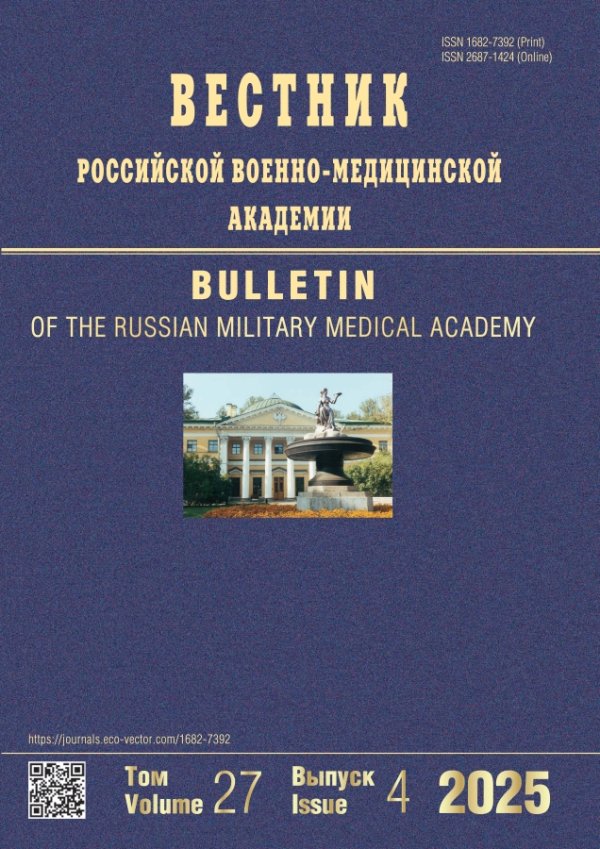Experience in conducting aftercare for children with consequences of neuroinfections on the basis of the Science Research Institute of Сhildren Infections
- Authors: Samoylova IG1
-
Affiliations:
- Детский научно-клинический центр инфекционных болезней Федерального медико-биологического агентства
- Issue: Vol 20, No 2 (2018)
- Pages: 33-35
- Section: Articles
- URL: https://journals.rcsi.science/1682-7392/article/view/12214
- DOI: https://doi.org/10.17816/brmma12214
- ID: 12214
Cite item
Full Text
Abstract
The experience of medical rehabilitation for children who have undergone neuroinfections and other disorders of the central and peripheral nervous systems on the basis of the Children’s Scientific and Clinical Center of Infectious Diseases is presented. The importance of this problem is determined by the high degree of disability of children with lesions of the nervous system. Based on this center, a two-stage system of medical rehabilitation of children was developed and organized, which transferred the neuroinfections. The first stage is carried out directly in the profile department intended for the treatment of neuroinfections. In this department, children with diseases of the nervous system prevail, infectious and parasitic diseases accounting for 70.2 and 17.6%, respectively. The second stage of medical rehabilitation is conducted in the profile 55-bed rehabilitation department of day and night stay. The department is equipped with robotic medical diagnostic devices. In this department, not only those children who have undergone neuroinfections can be treated, but also with a number of complications arising from other diseases. A two-stage system of medical rehabilitation of children, created on the basis of the Children’s Scientific and Clinical Center for Infectious Diseases, is an exemplary model of providing medical rehabilitation for children. Nevertheless, there was a significant excess of the load on this department for such indicators as: the average length of stay of the patient on the bed, and also the average annual employment of the bed both at the first stage of medical rehabilitation and at the second stage. The data obtained during the study indicate the need to develop and expand the network of these institutions.
Full Text
##article.viewOnOriginalSite##About the authors
I G Samoylova
Детский научно-клинический центр инфекционных болезней Федерального медико-биологического агентства
Email: klinika@niidi.ru
Санкт-Петербург
References
- Вишняков, Н.И. Общественное здоровье и здравоохранение: учебник для студентов / Н.И. Вишняков [и др.]. - 8-е изд., испр. и доп. - М.: МЕДпресс-информ, 2016. - 832 с.
- Козько, В.Н. Проблема нейроинфекций в работе инфекцион- ной службы Харьковской области на современном этапе 34 2 (62) - 2018 ВЕСТНИК РОССИЙСКОЙ ВОЕННО-МЕДИЦИНСКОЙ АКАДЕМИИ Клинические исследования / В.Н. Козько [и др.] // Международные обзоры: клинич. практика и здоровье. - 2015. - № 5. - С. 77-81.
- Комарова, Т.В. Серозный менингит энтеровирусной этиологии у детей: клинико-патогенетические особенности в период эпидемического подъема: автореф. дис.. канд. мед. наук / Т.В. Комарова. - Самара, 2012. - 24 с.
- Aronin, S.I. Community-acquired bacterial meningitis: risk stratification for adverse clinical outcome and effect of antibiotic timing / S.I. Aronin, P. Peduzzi, V.J. Quagliarello // Ann. Intern. Med. - 1998. - Vol. 129, № 11. - Р. 862-869.
- Klein, M. Therapy of community-acquired acute bacterial meningitis: the clock is running / M. Klein [et al.] // Expert Opin. Pharmacother. - 2009. - Vol. 10, № 16. - P. 2609-2623.
Supplementary files







